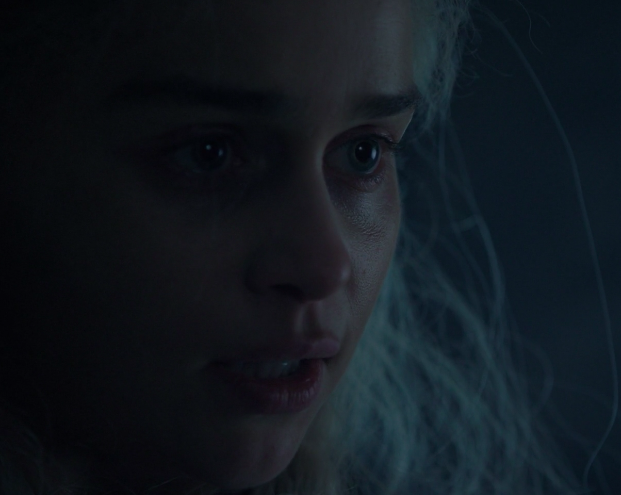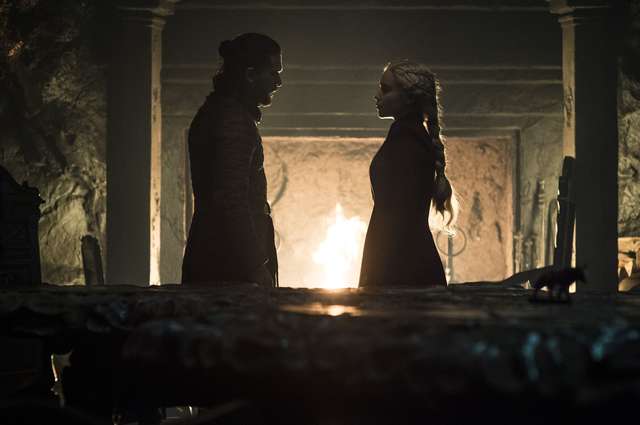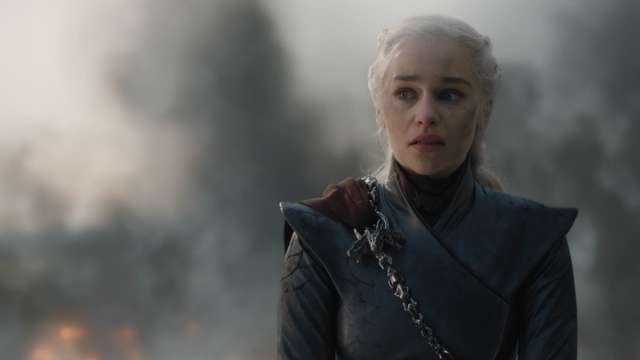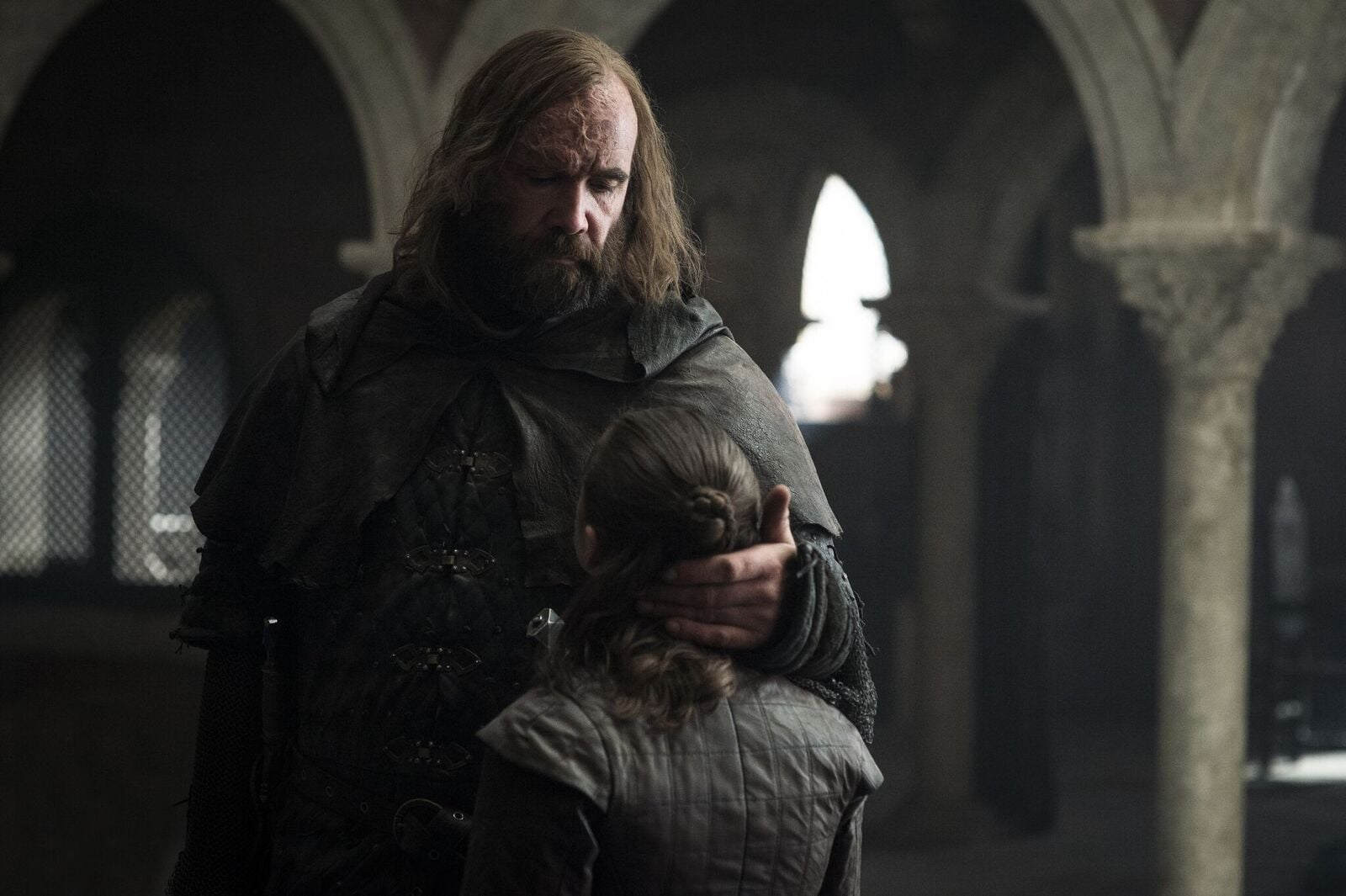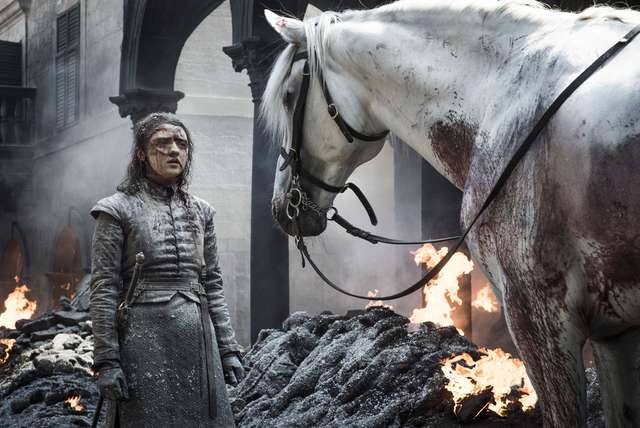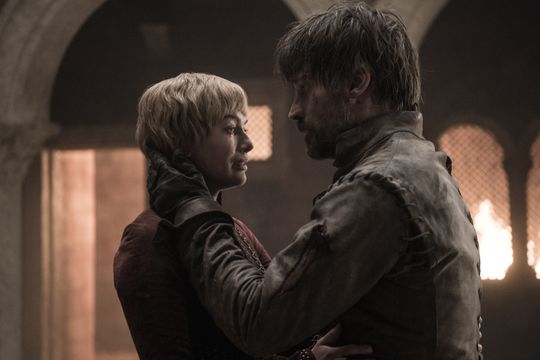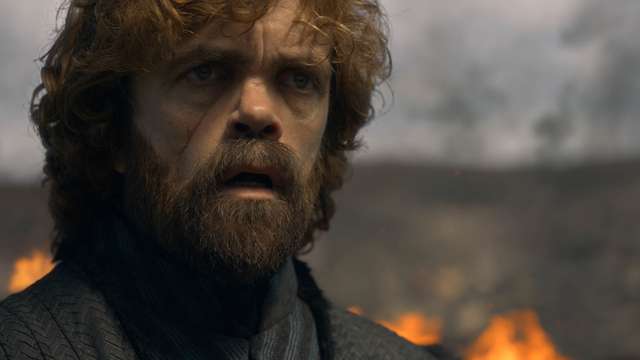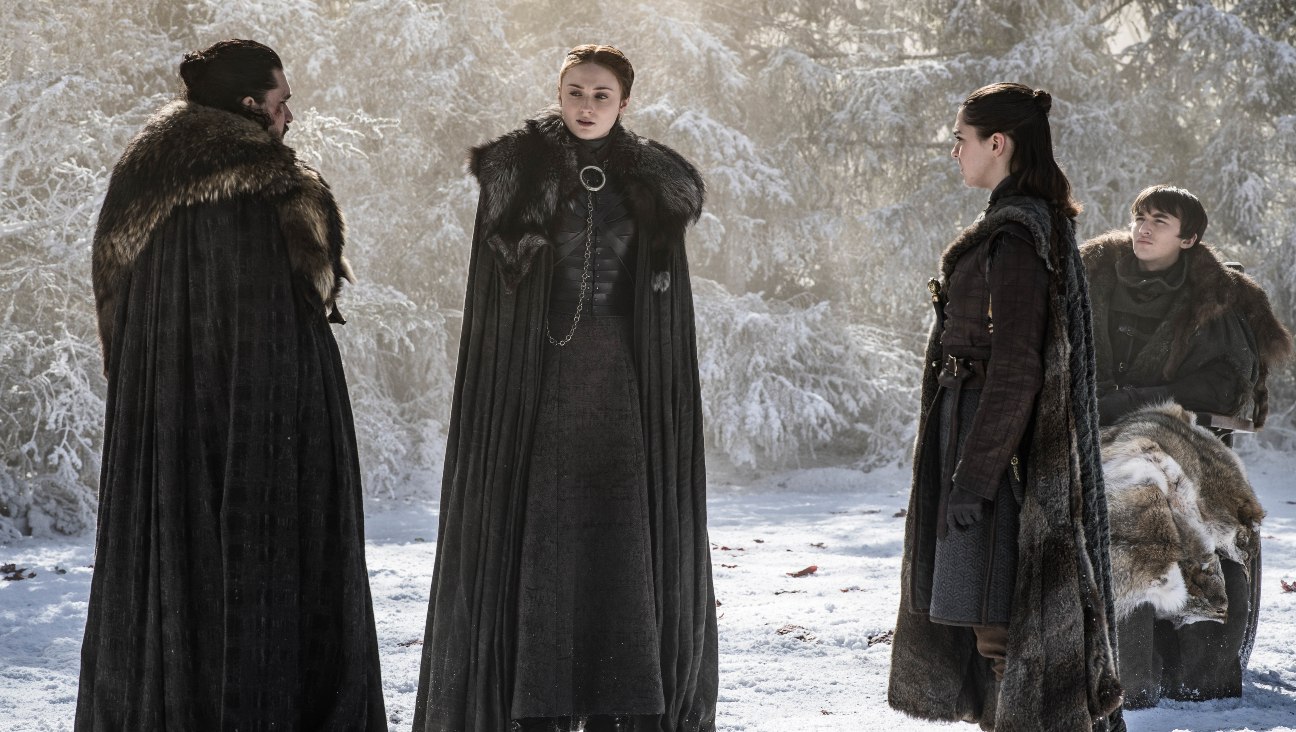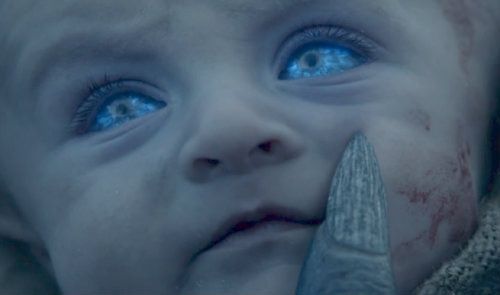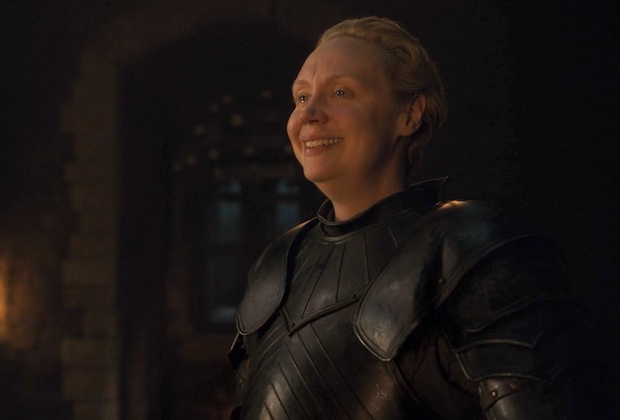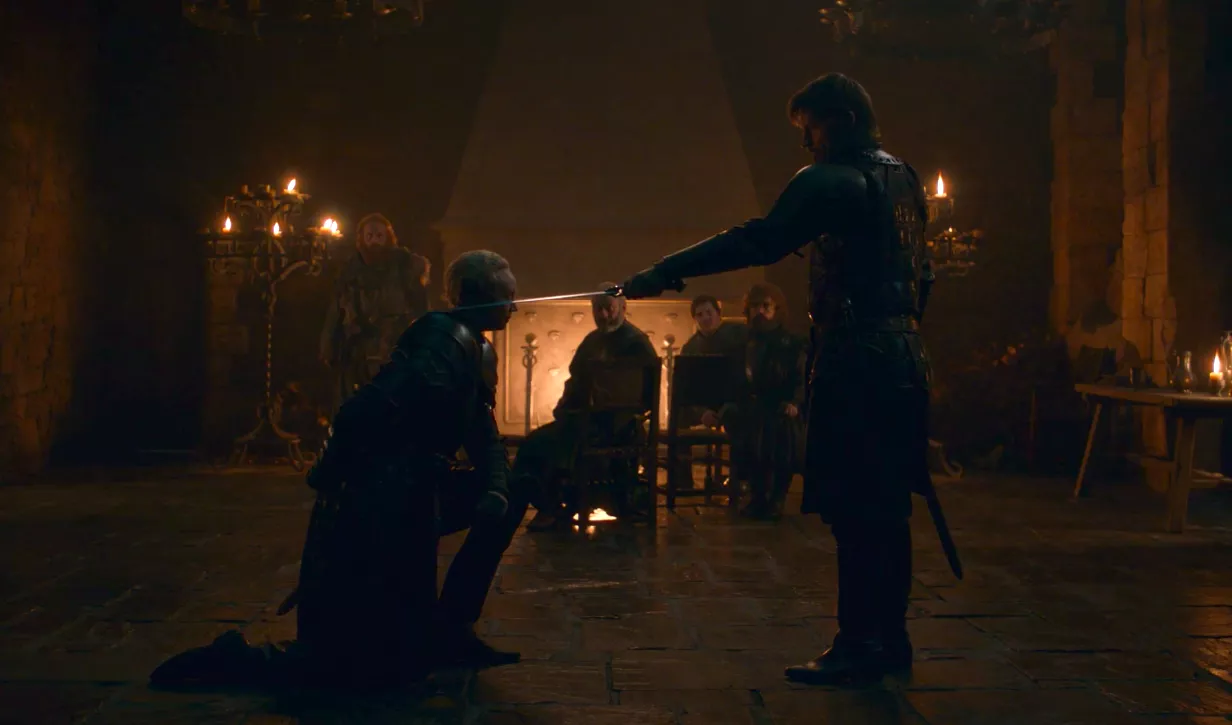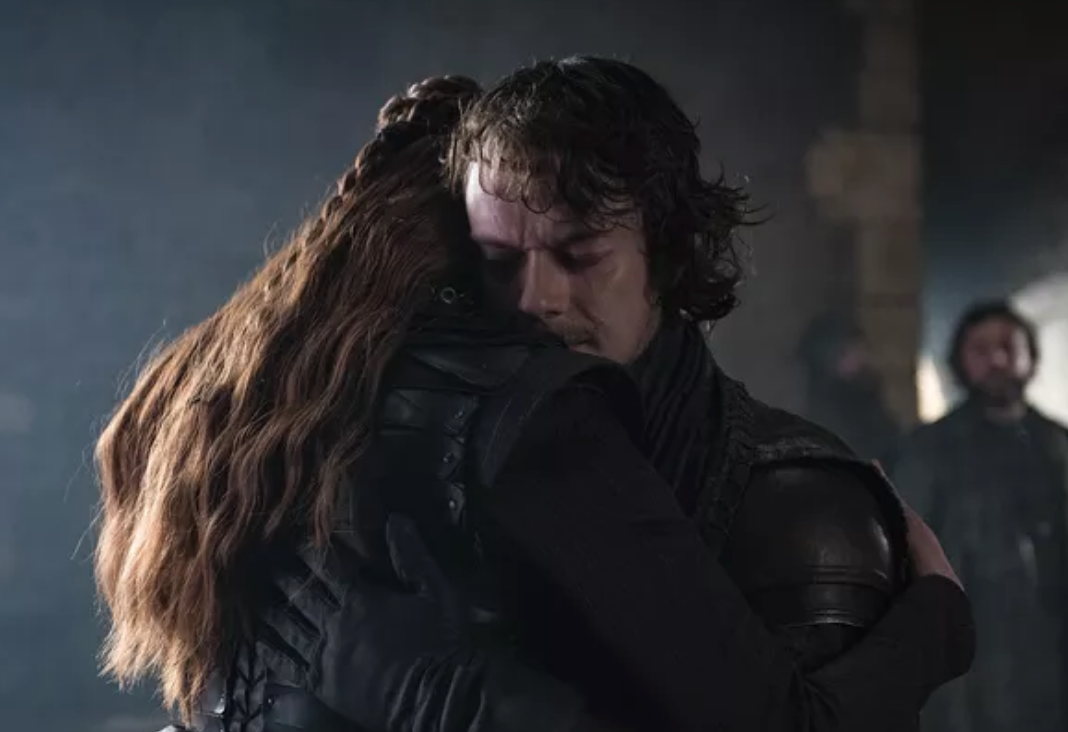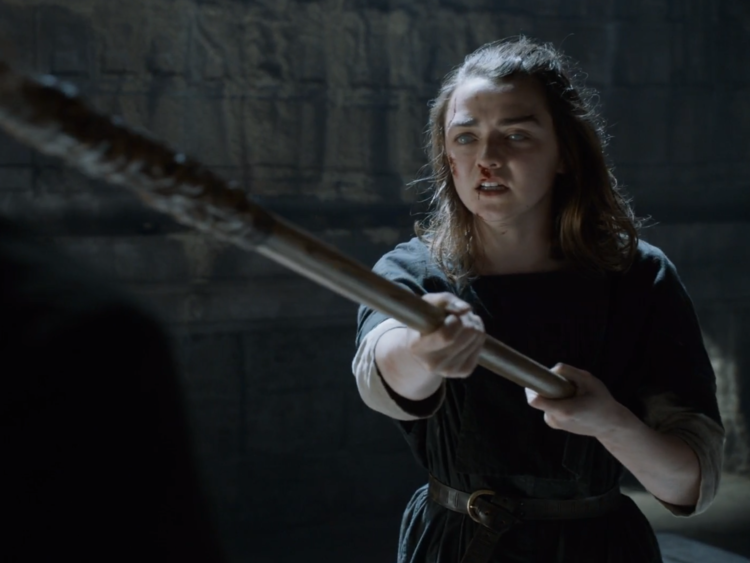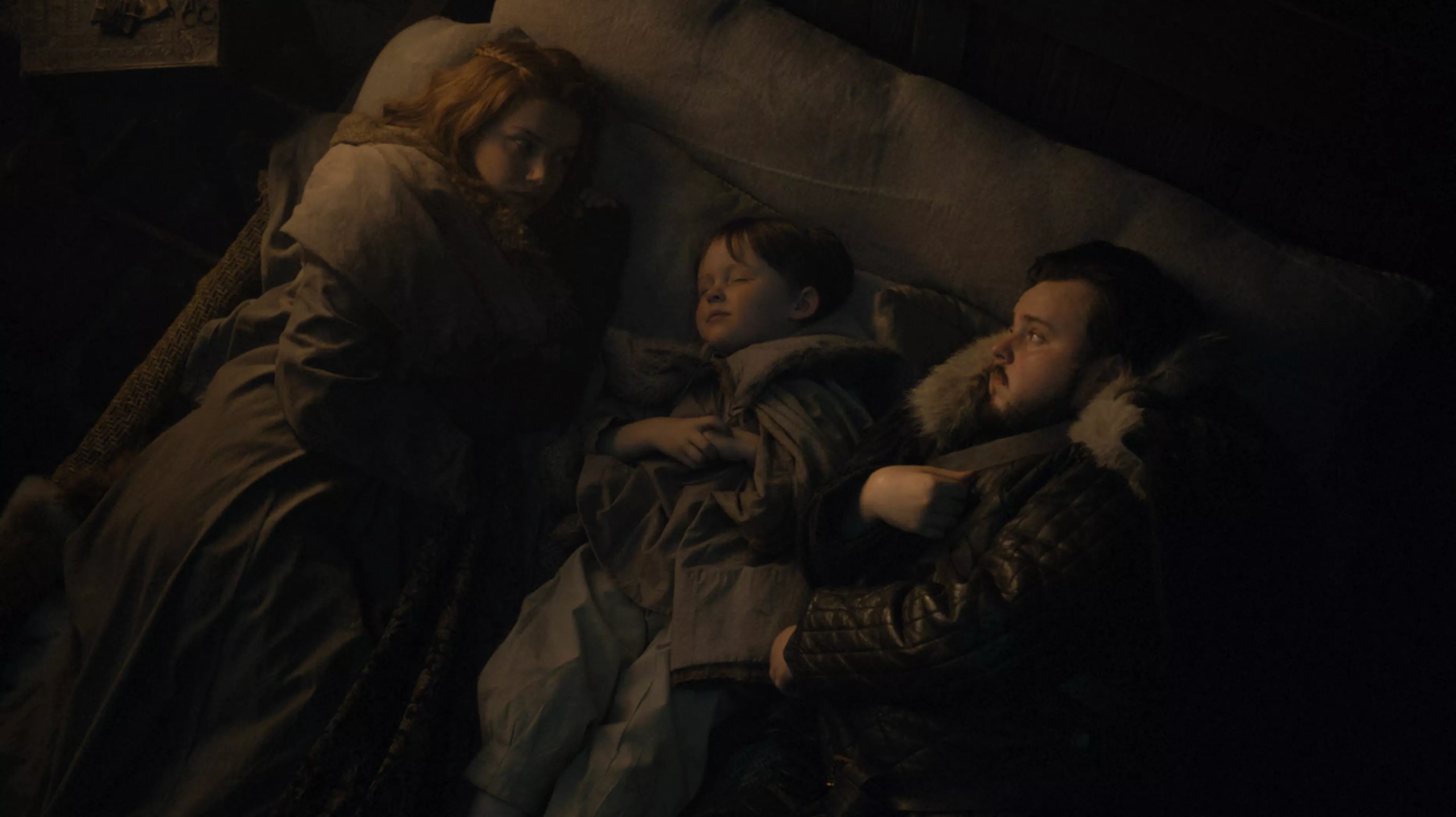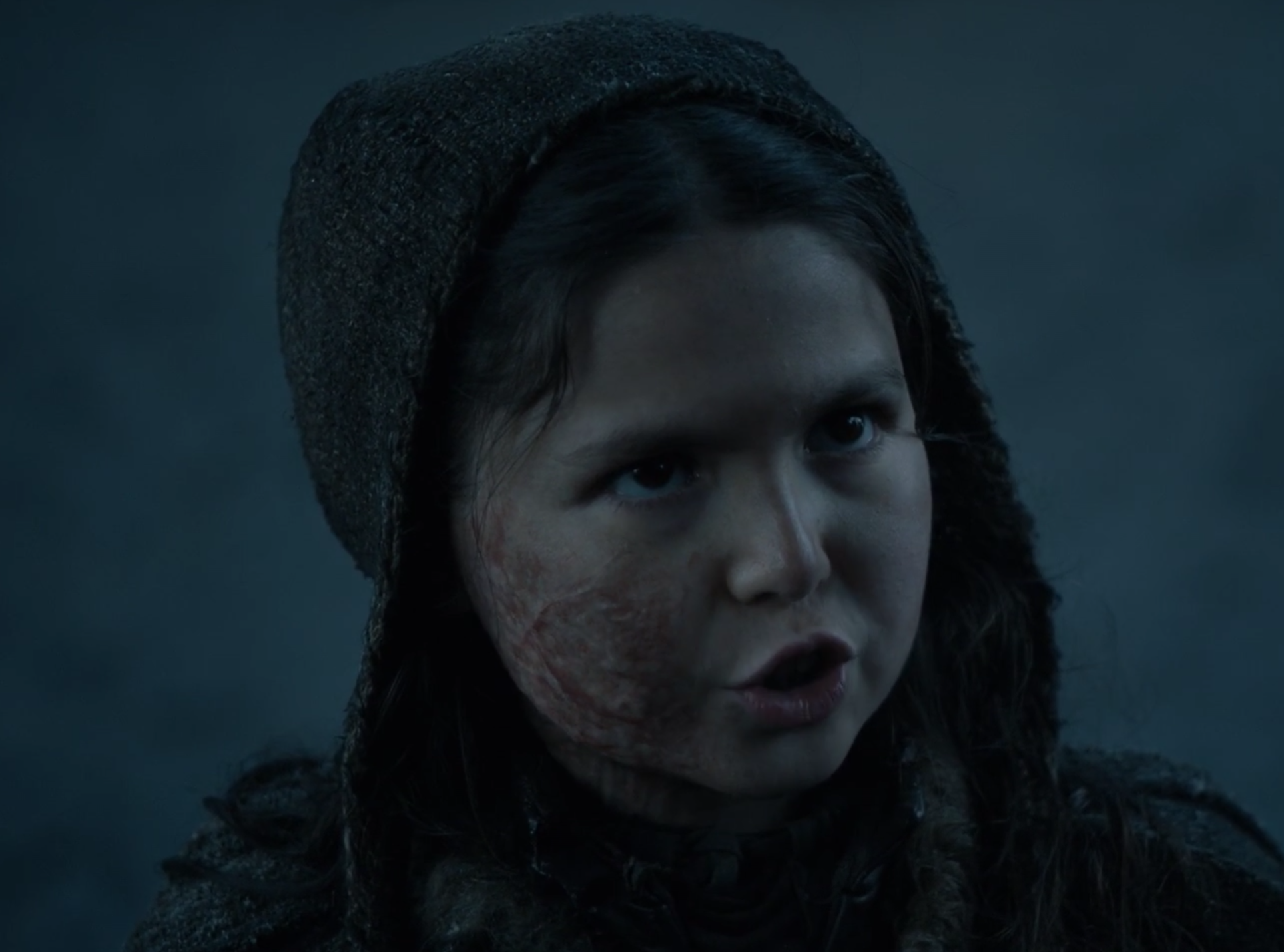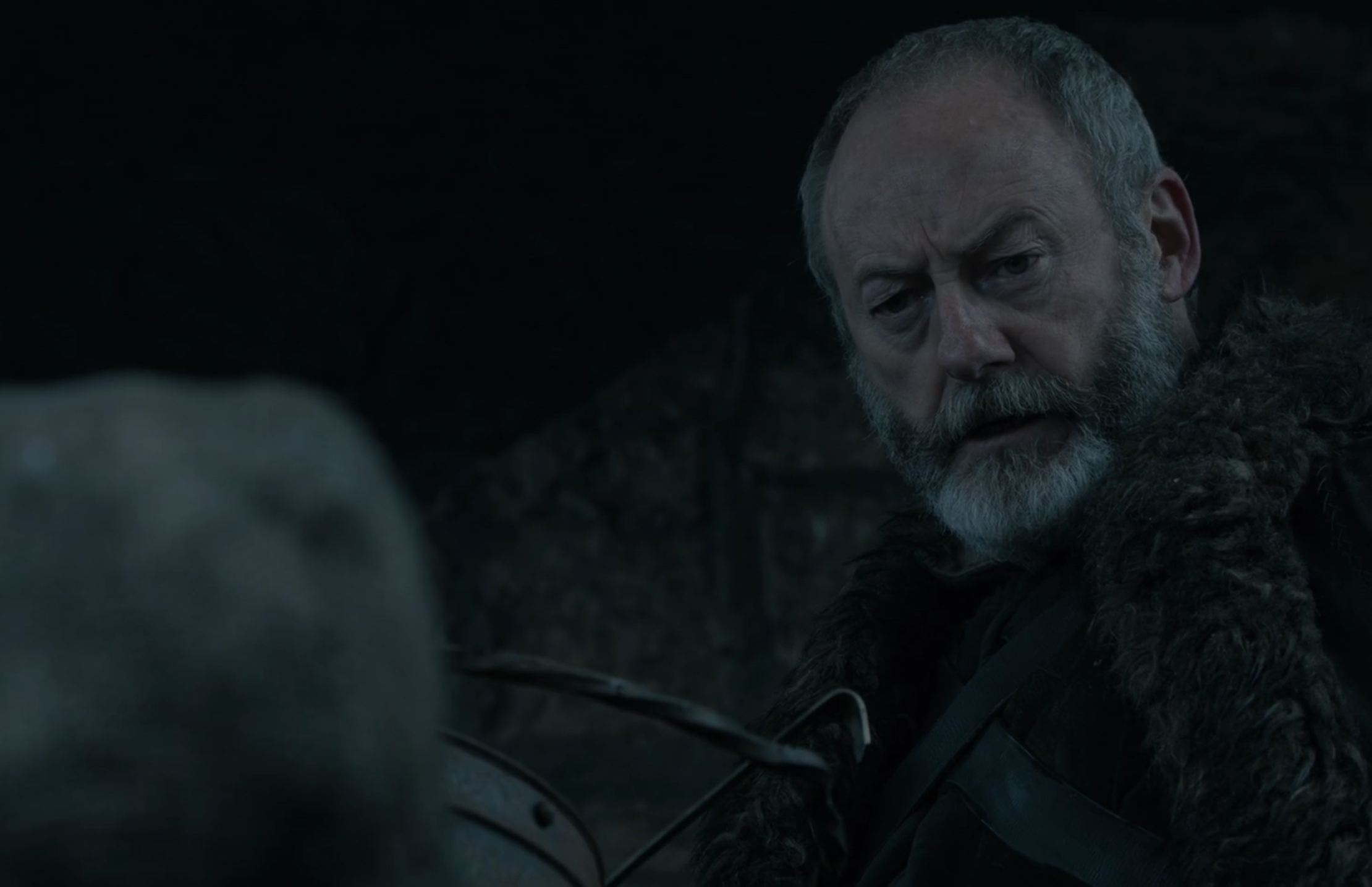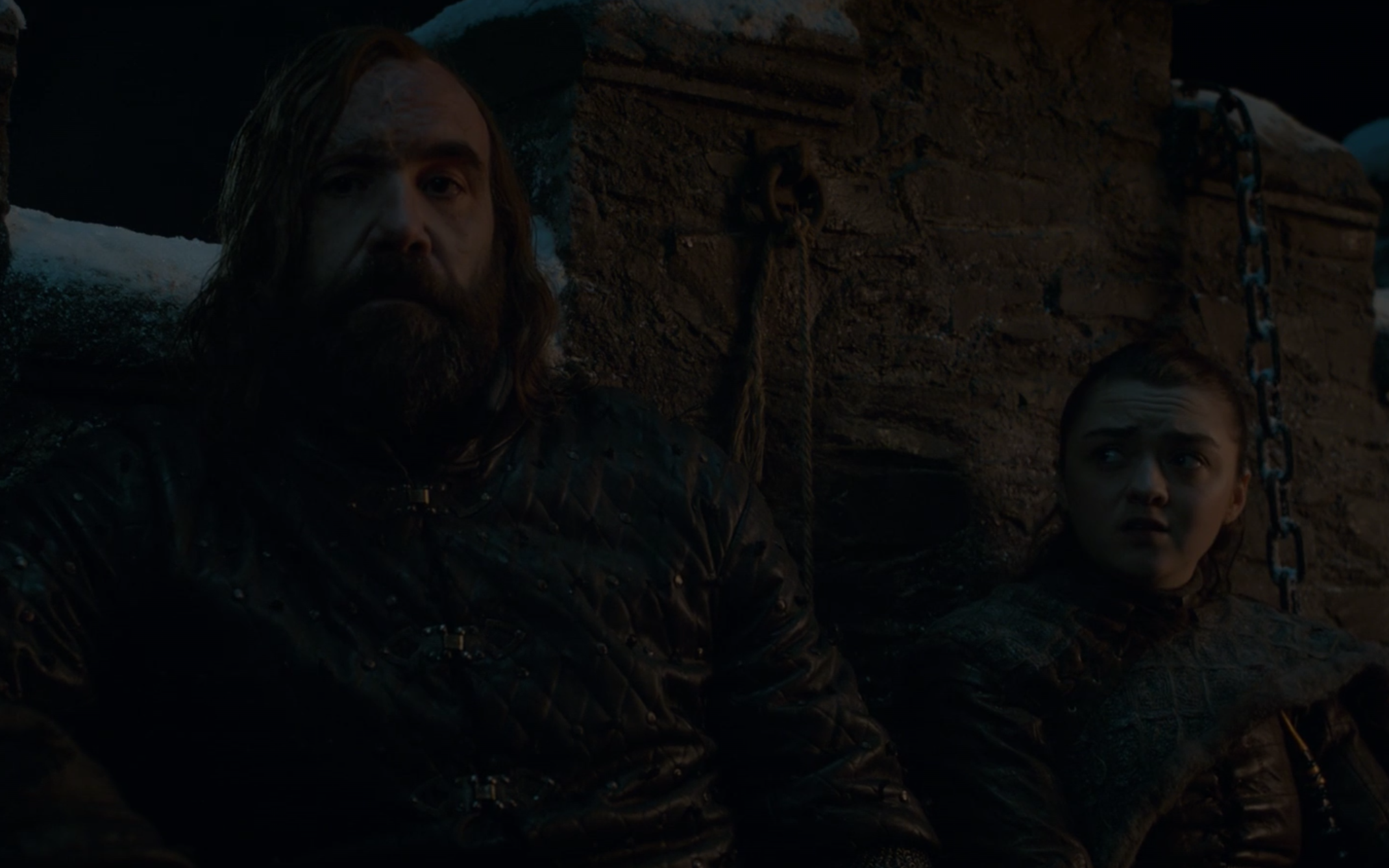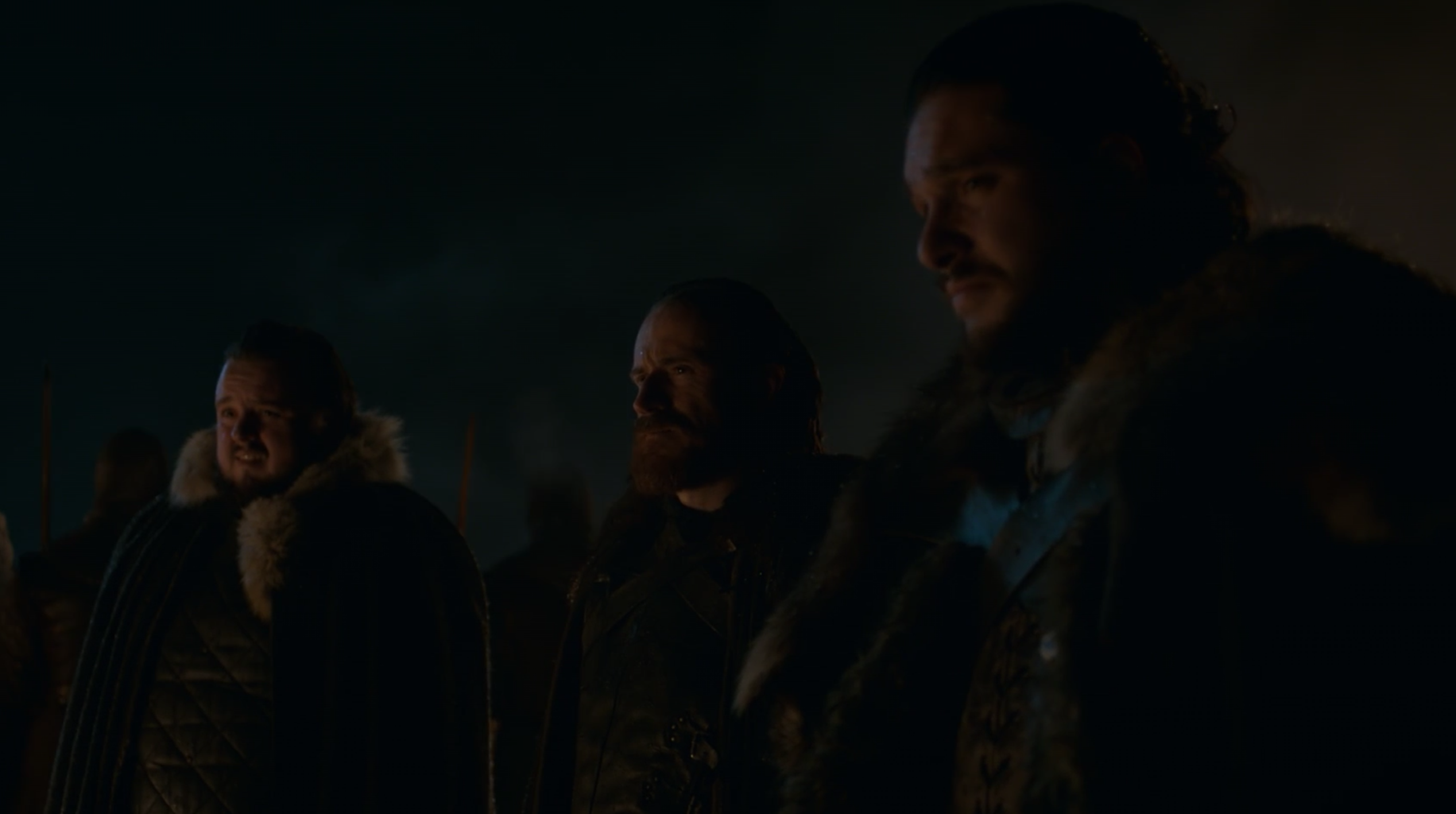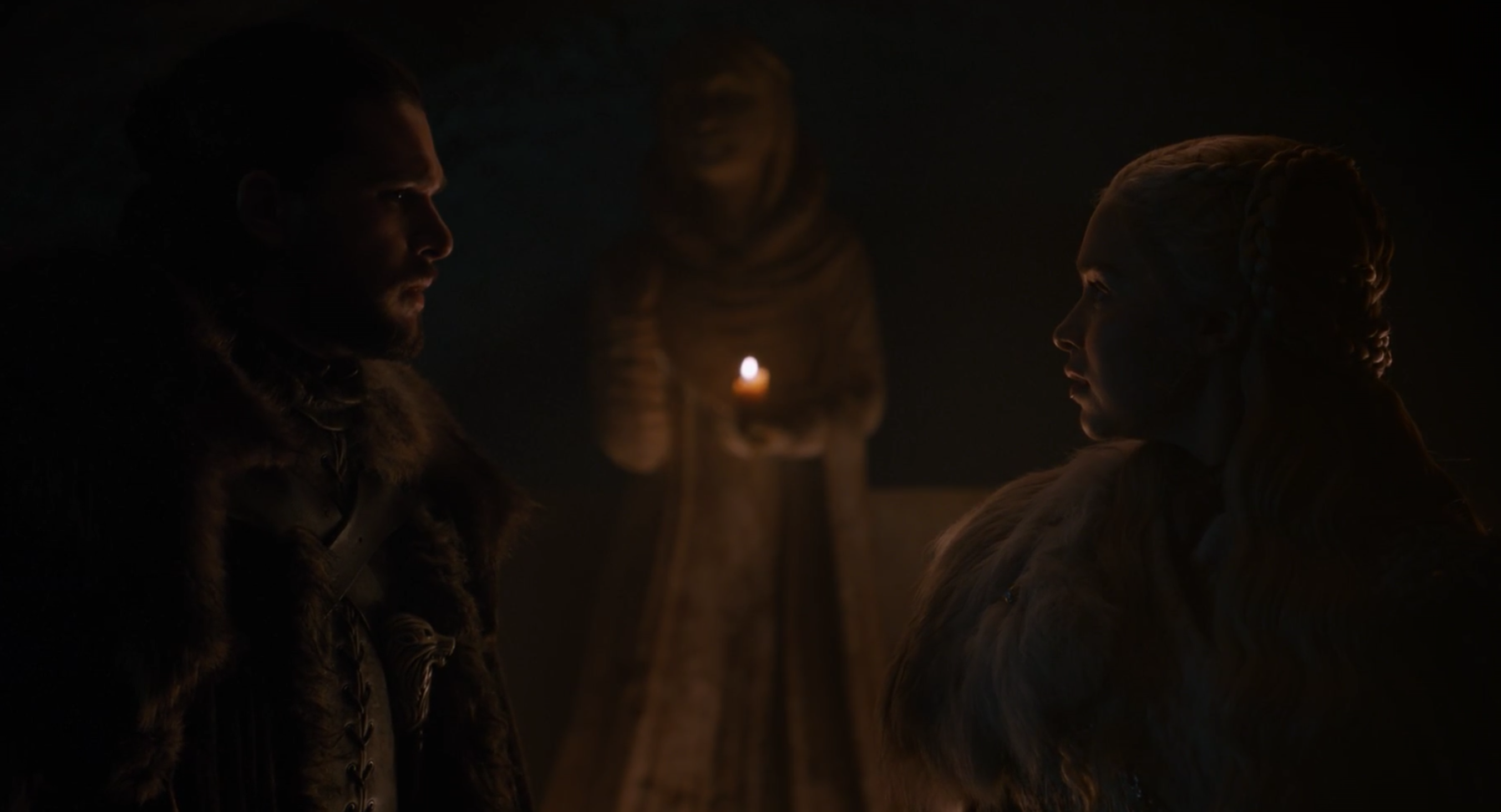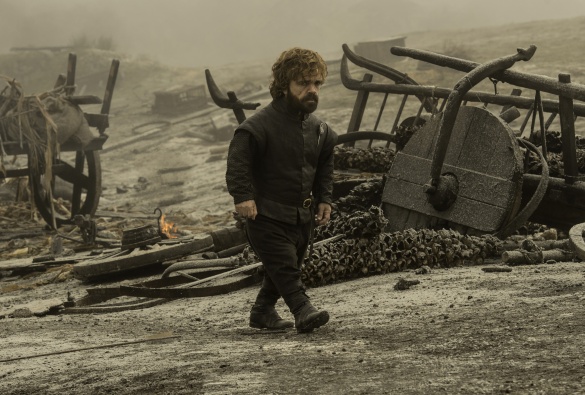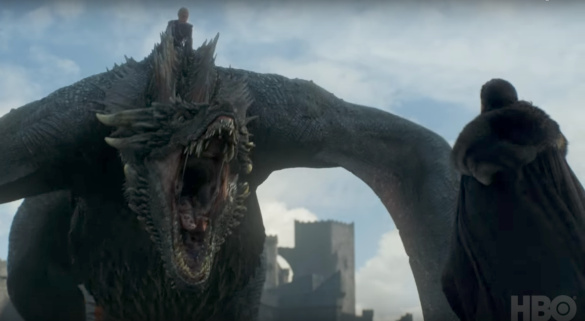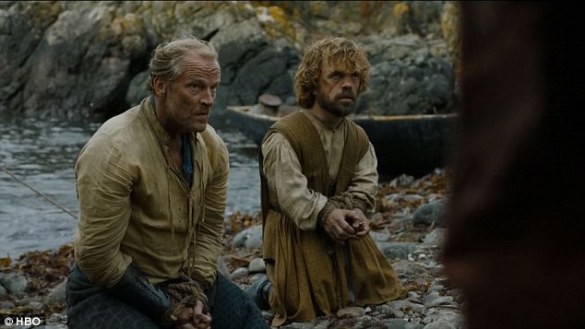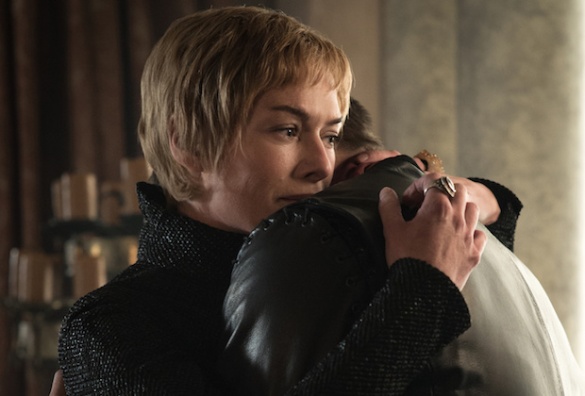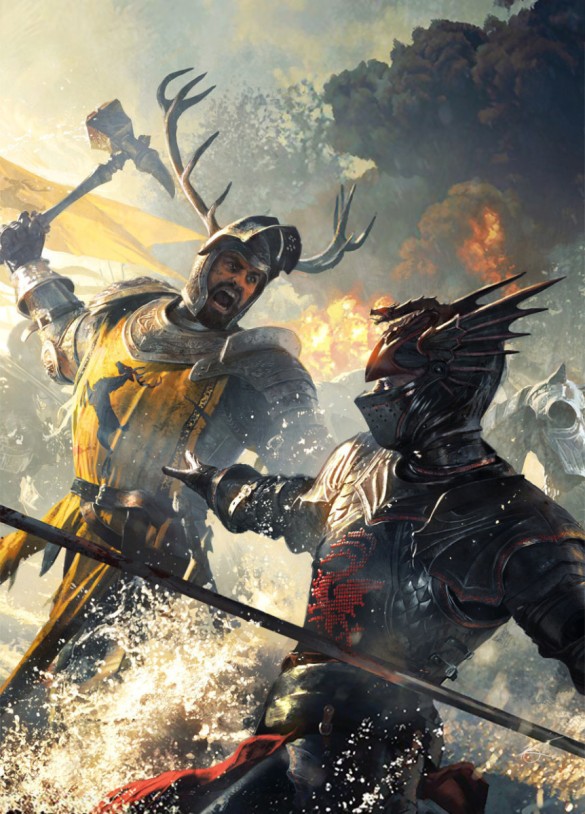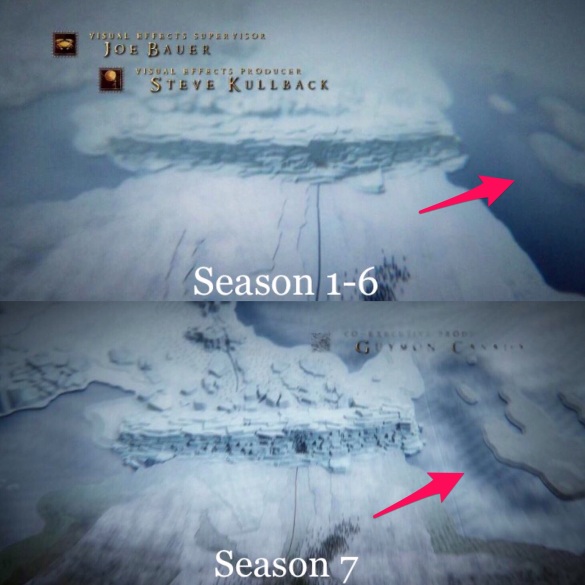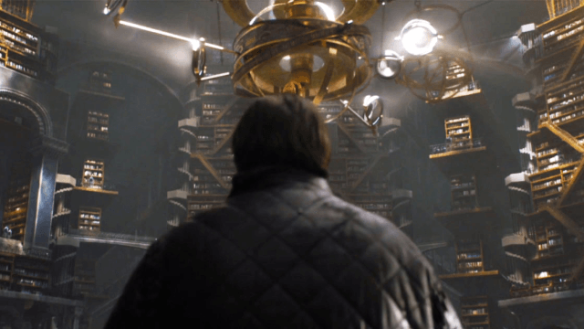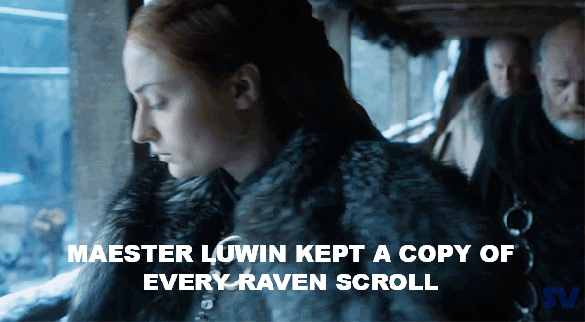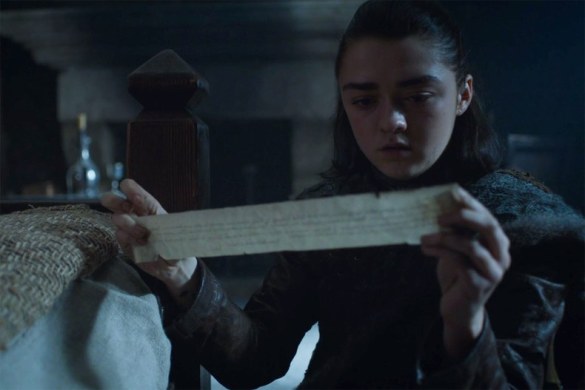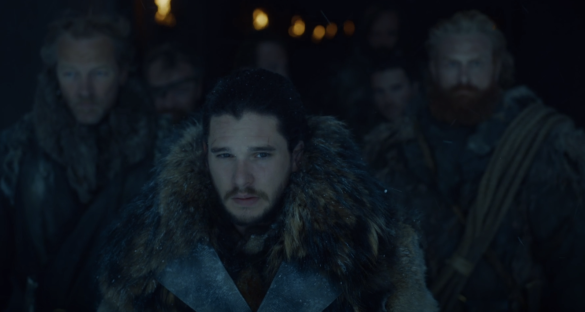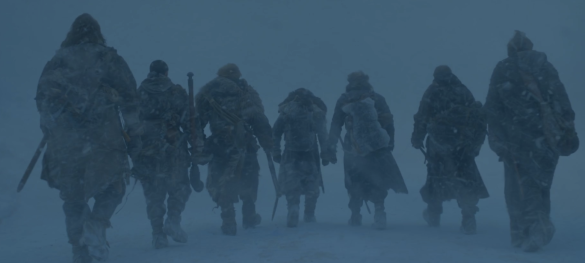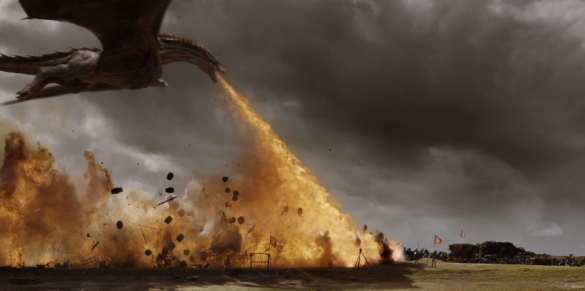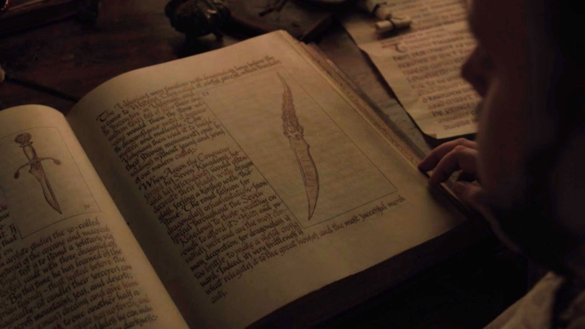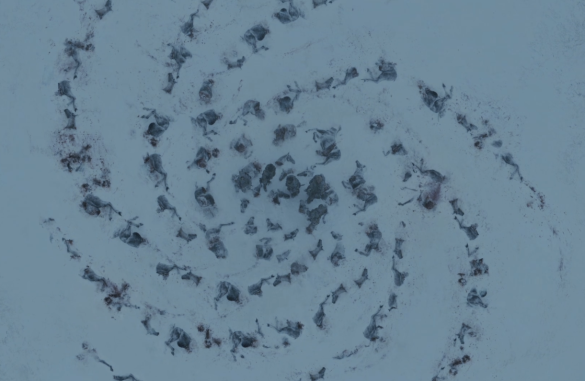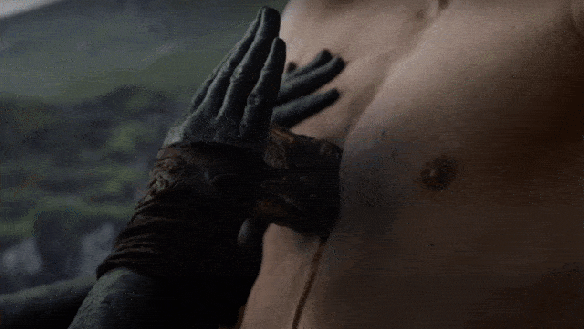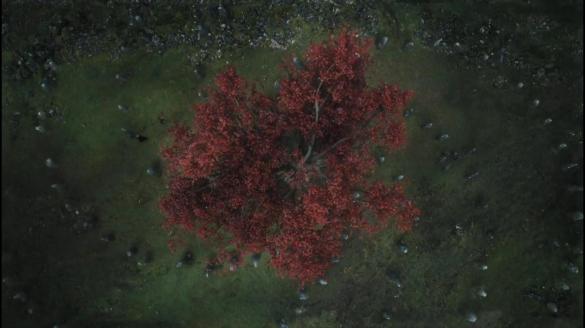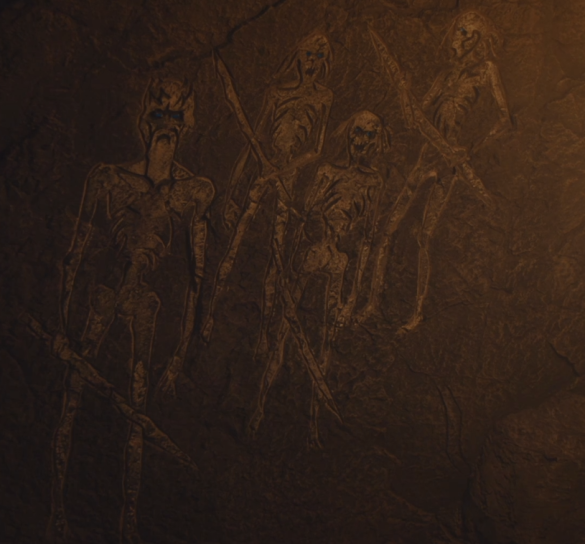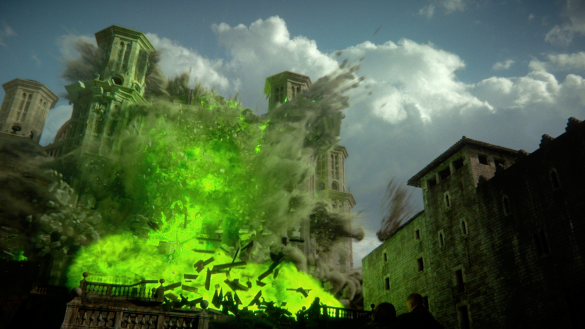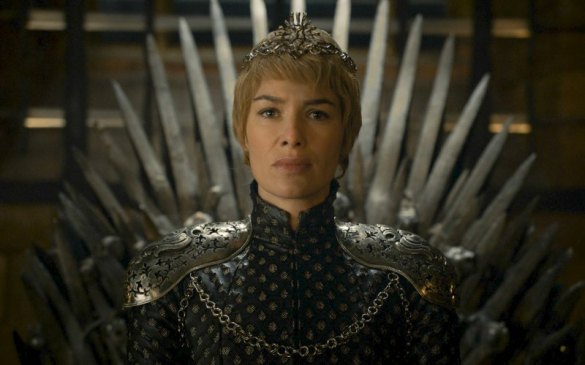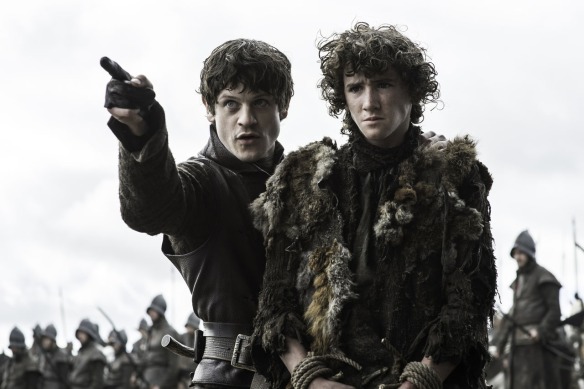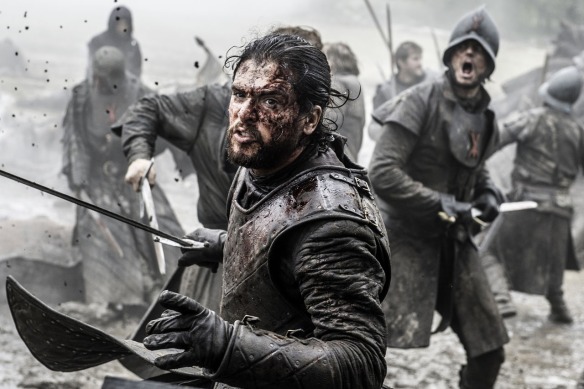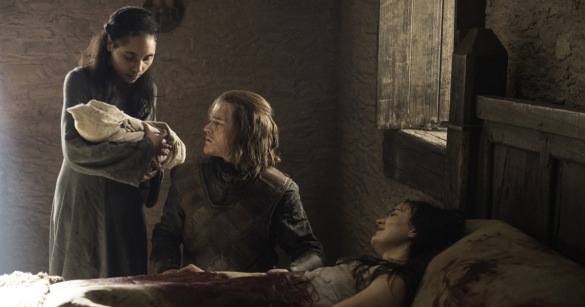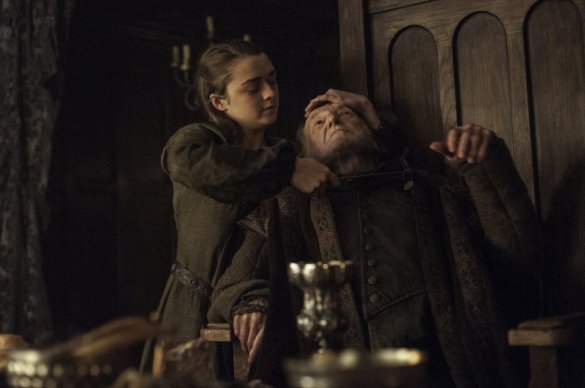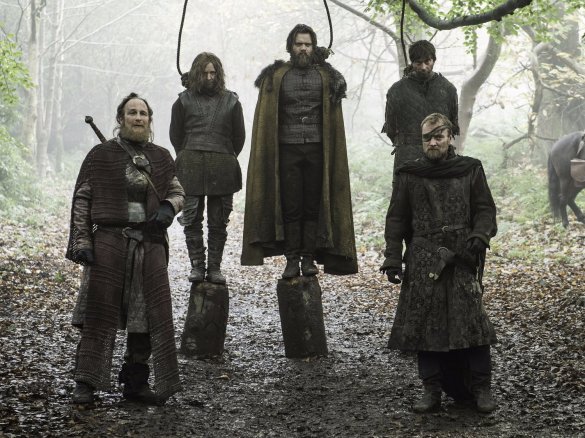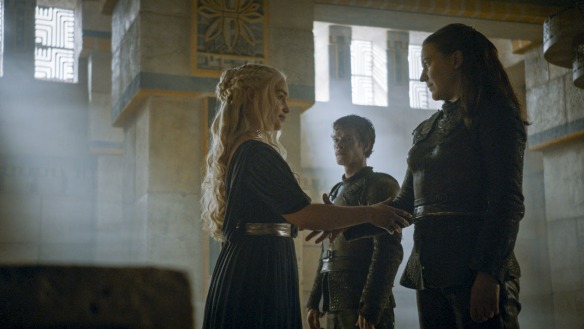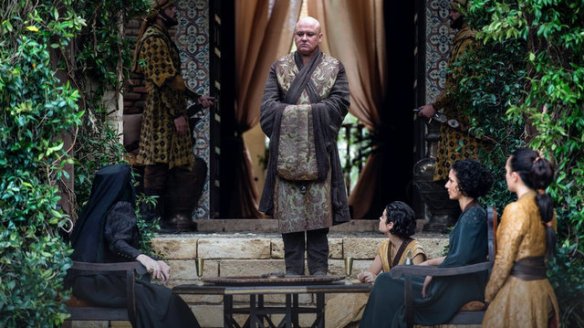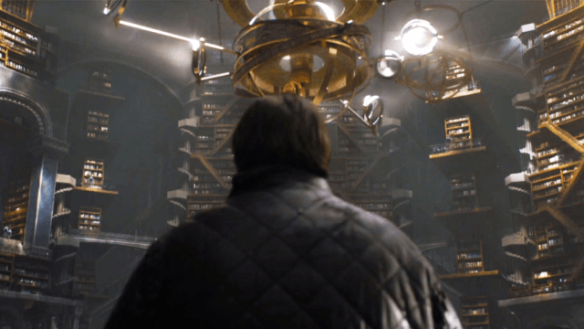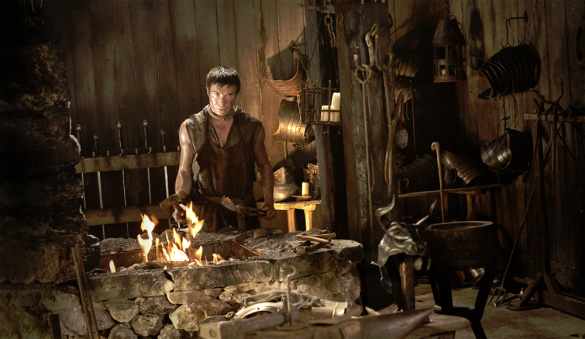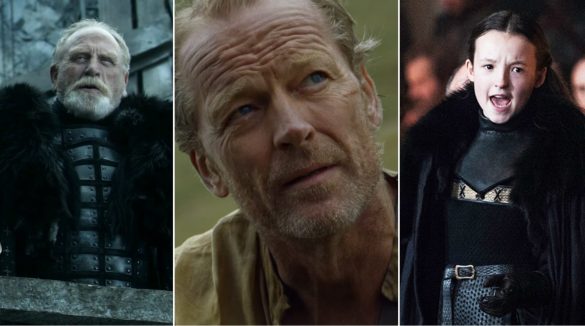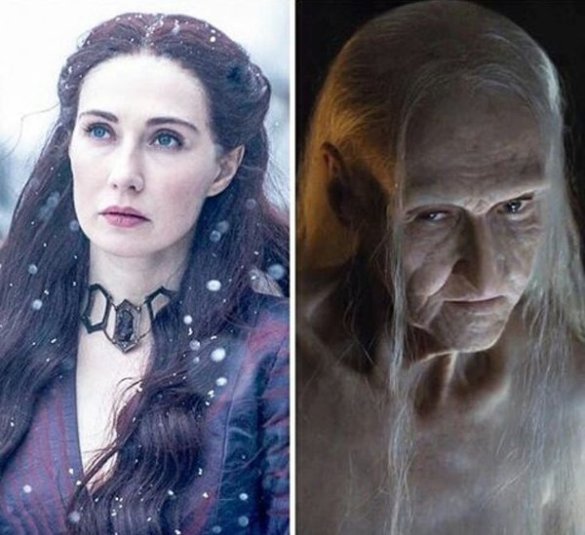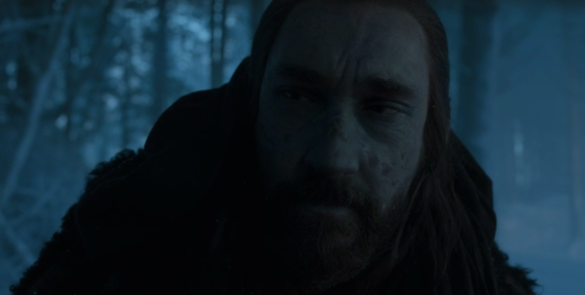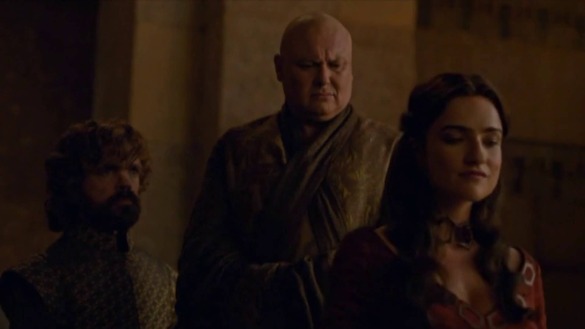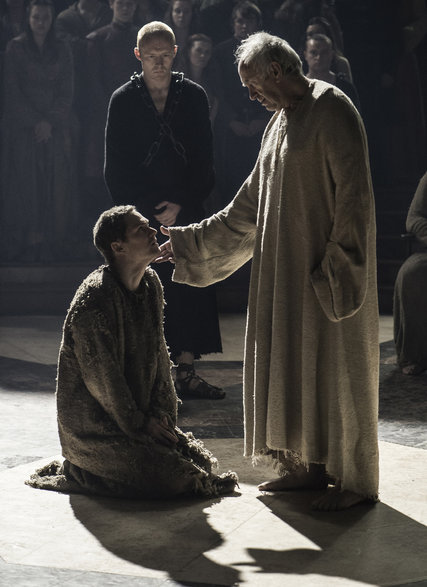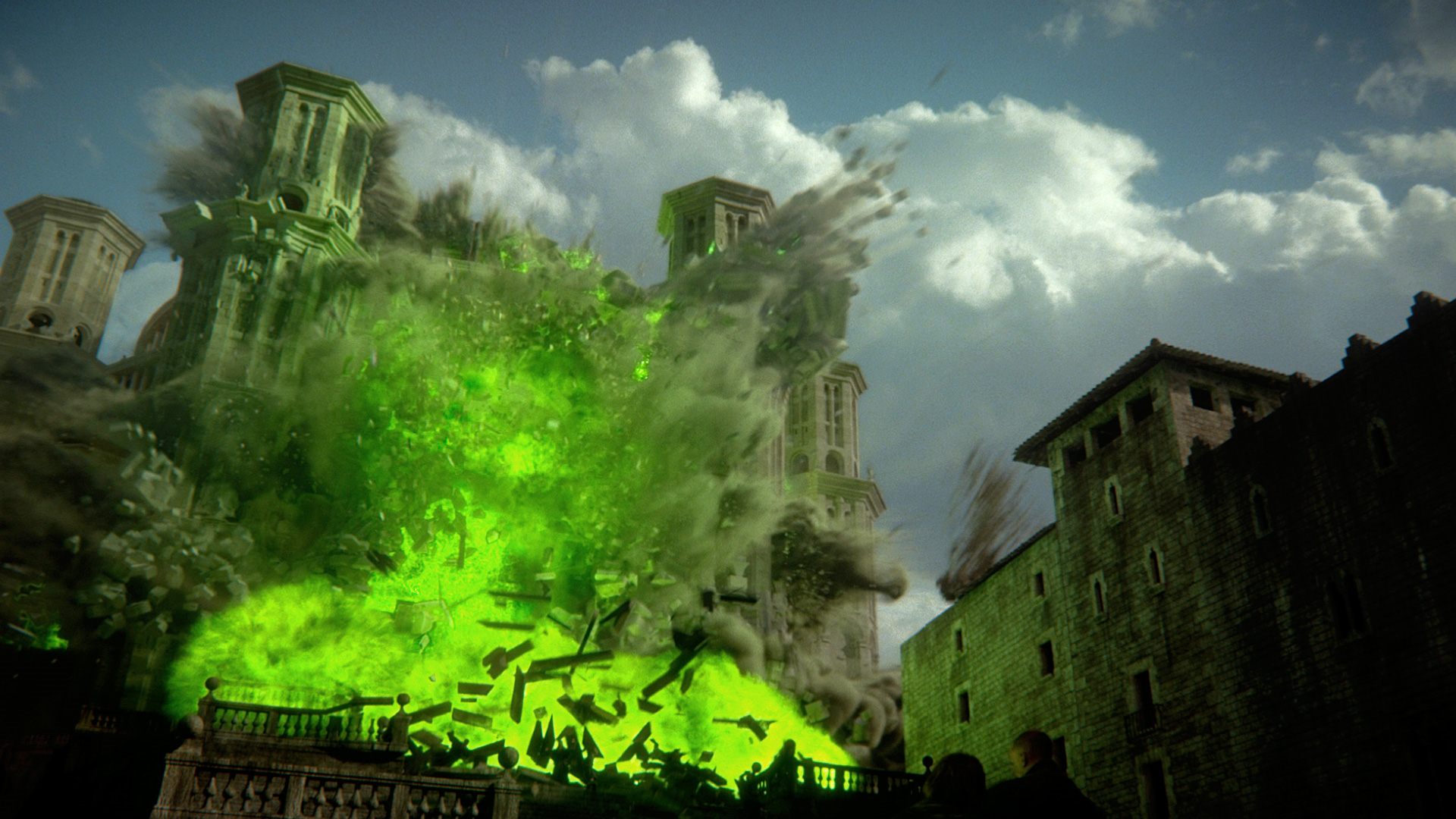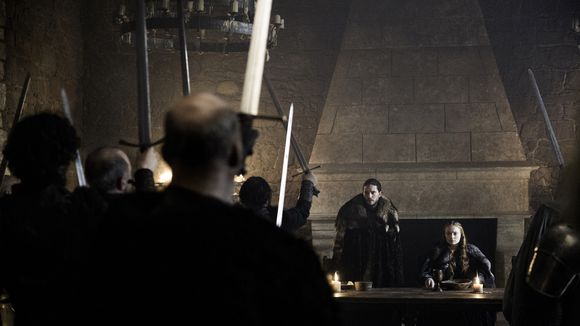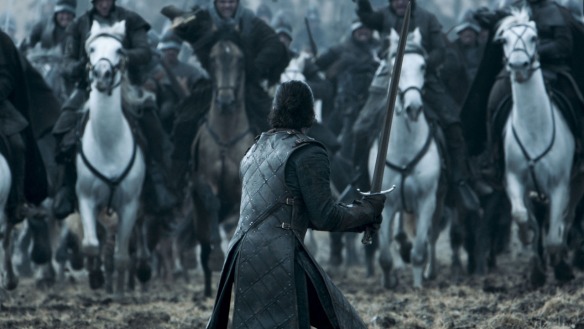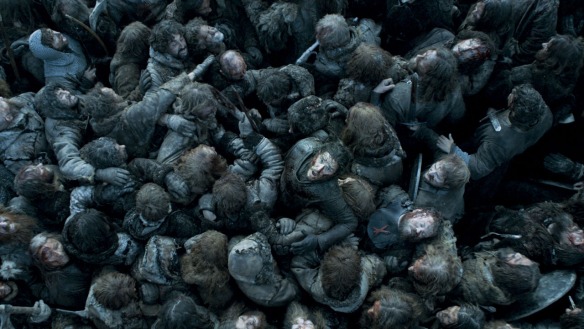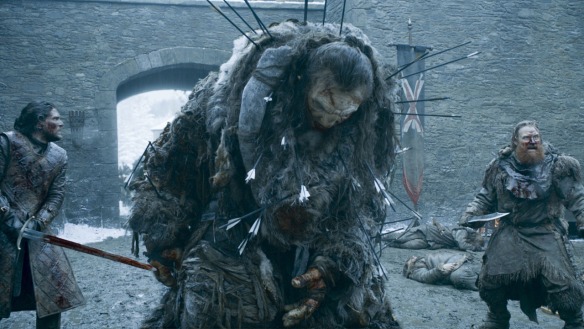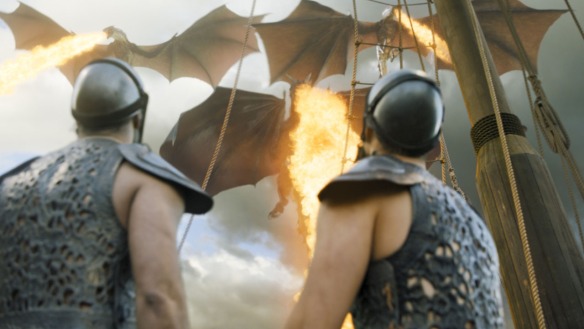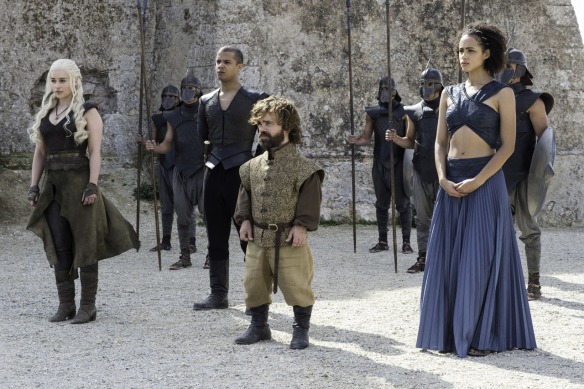DISCLAIMER: THERE ARE NO SPOILERS IN THIS ARTICLE. I HAVE NO KNOWLEDGE OF WHAT IS TO TRANSPIRE IN THIS STORY. ANY VIEWS OR CONTENT EXPRESSED ARE SOLELY PERSONAL THEORIES, OPINIONS AND INSIGHTS.
What Just Happened?
Shocked. Confused. Disappointed. Baffled. There is no shortage of adjectives to describe the way I feel after the final installment of Game of Thrones, but simply put, it was an emphatic explanation point on an utterly disappointing season. At its best, Game of Thrones took us to highs that few stories have before; and as we saw in this finale episode, at its worst, Thrones was capable of reaching equally extreme lows. With each episode that passed this season, the simple (and terribly sad) reality became more and more apparent: the folks producing this show simply were not going to be able to deliver a successful end to this story. And despite a season defined by poor story telling, inexplicable character development, pacing of events that often made no sense — despite all of that — I still held out a bit of hope that the final episode would have one final magical twist or turn that would help to make things right. After all, this is Game of Thrones we are talking about — this was the one show that simply would not, and could not, mess up the end to its story the way so many other shows have.
But the truth is now plain to see and there is no hiding from it. The reality is that the magic of this world we became so captivated by — the characters, the history, the locales, the families, the lore, the mythology — all of it — it all lived in a series of books. And while HBO did an absolutely masterful job at adapting the magic of those books to TV, the reality is that we were always destined, to some extent, to end up exactly where we did. George R.R. Martin took the better part of 20 years to create the enthralling world that we fell in love with over the first six seasons. But those six seasons were based on the five books he had written — two short of the seven books that will (hopefully) be published to bring the A Song of Ice and Fire saga to a close. Writing for the sixth book, The Winds of Winter, began over eight years ago, and is still not out. It’s anybody’s guess when final book, A Dream of Spring, will be published, but it likely will not be for another 10 years or so.
So what does this tells us? It tells us that the homestretch of this story, a story that has taken over 25 years to write, simply does not yet exist, and likely won’t for many years to come. There is a reason George R.R. Martin takes so many years to write each book and it’s not simply because the writing itself takes so long. It’s because he is actually taking an incredible amount of time to continue to create and develop the story itself. And as the story starts getting towards it’s final chapter, it becomes increasingly more challenging to think about how each character’s journey comes to an end, how various storylines converge, and how this epic saga ultimately reaches its finale.
The predicament we find ourselves in is that while George R.R. Martin will take as much time as is required to finish this story the right way, HBO could not. So, what we were left with for the last two seasons, was a story that was based on loose directional feedback provided by George R.R. Martin, which left Thrones writers and producers filling in some very large gaps. Sure, George R.R. may have been able to tell Thrones producers what the singular endpoint of this story was, but he simply hasn’t yet conjured up and all the intricate subplots and character journeys that lead us to that endpoint. And without having his story to tell, we were left with a watered down, overly simplified, dumbed down version of what I believe the ending to this story will be when he tells it through the books. To some extent, the show was always destined to end this way, only I don’t think anybody thought it could ever get this bad.
The finale episode, entitled The Iron Throne, was riddled with one cringe-worthy cliche after the next. As has been the case throughout most of the season, the pacing felt totally off, with certain moments being totally rushed, and other less significant ones dragging on. The writing, specifically much of the dialogue, landed somewhere between embarrassing and comical. The aftermath of last week’s total destruction of King’s Landing simply felt totally contrived, with writers bringing rather abrupt endings to each character’s story. So much so, that it almost felt as if this finale episode was disjointed from the entire story that preceded it. It was as if this finale episode was given to a brand new team of writers that knew absolutely nothing about the story that has spanned the last 10 years, and were asked to do their best to synthesize some sort of close that forced endings for each character. One moment I felt I was watching a soap opera, the next I felt I was stuck in a bad SNL skit. How could this be? I mean I wasn’t expecting a whole ton after how disappointing this entire season has been, but really, I never could have imagined the new lows that were reached. There was absolutely nothing interesting. Nothing unique. No twists or turns. Very little emotion. Only cheap storytelling that made this episode feel like it was an obligation — a chore to get this thing wrapped up — rather than a vehicle to truly end this story in a meaningful way.
A Mess in King’s Landing
The episode begins as we see Tyrion and others taking in the aftermath of Dany’s fire and blood escapades. King’s Landing has now become a wasteland, with only skeletons and ash to speak of, which further underscored the ridiculousness of how far Dany took things last week. As Tyrion continues through King’s Landing, he eventually makes his way below the Red Keep where he finds Cersei and Jaime’s final resting place. Despite all his efforts, Tyrion could not stop all the death that was to come, and all he can do now is look on at his last remaining family members, gone forever. As Jaime and Cersei lay together, it was a poetic reminder that Tyrion really has been alone in this world most of his life, and even though Jaime cared about him a great deal, he was always an outsider compared to the twin bond that Cersei and Jaime shared.
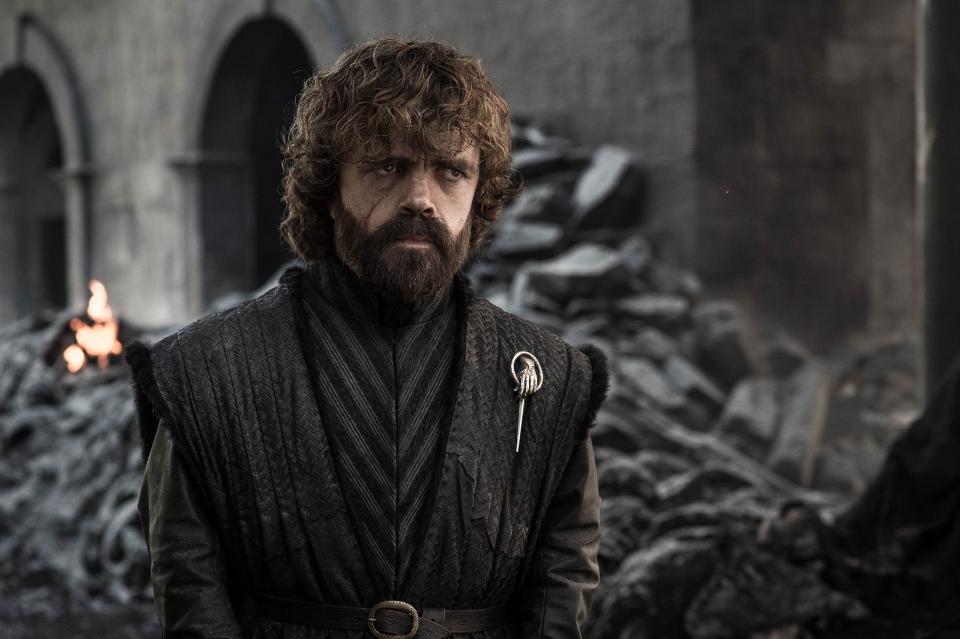
Continuing her plunge into madness, we see Dany standing over a ruined King’s Landing, delivering an impassioned speech to her army, in which she basically tells them that this was just the beginning, and she plans to take her show on the road. While we all saw her evolve into The Mad Queen last week (at a pace that made absolutely no sense), the door was still left open for her to show some remorse in this finale episode. But that door shut pretty quickly and it became evident that no amount of death and destruction would be too great a cost for her to “break the wheel.” In reality, Dany herself sounded like a ruthless tyrant, one capable of committing devastating acts — the very type of ruler she has so badly wanted to rid from the world. It continued to be frustrating to watch just how cruel and vicious she has become so quickly, and it felt totally contradictory to who Dany was for the better part of the last 10 years.

Realizing he was on the wrong side of things, Tyrion gave Dany a big “f you” as he denounces her slaughter and abandons his post of hand to the queen. He’s quickly taken as her prisoner as Jon can only look on. Jon then goes to visit Tyrion, where they continue to go back and forth about whether or not Dany must be stopped. In their exchange, Jon references something Maestar Aemon told him all the way back in season one, “Love is the death of duty.” At the time, Maestar Aemon was explaining to Jon why brothers of the Night’s Watch could not have families — love would interfere with their duty to protect the realm. In response, Tyrion flips the idea that Maestar Aemon presented, and tells Jon that “sometimes, duty is the death of love.” No doubt, a suggestion that Jon’s duty to protect the realm might bring about the death of his love with Dany. Before Jon departs, Tyrion urges him that he must decide and he must decide now.
Moments later, surprise surprise, we see Dany in the Throne Room, a replay of basically the same vision she had in an earlier season where we saw the ruined Throne Room that she is now walking through. Once again, a reminder that she has become nothing more than queen of the ashes. If you asked me a few years ago what one of the most powerful moments in this story could have possibly been, I would have told you that at the top of the list would be the moment Dany finally reaches the Throne Room and ascends the Iron Throne that her ancestor, Aegon Targaryen, built 300 years before her. Sadly, the realization of this moment felt plain and unemotional, probably because of how little was left of the Throne Room itself, thanks to Dany’s temper tantrum that brought about the destruction of King’s Landing on the whole. She had finally reached the Iron Throne — the powerful symbol of all she had wanted — all she had sacrificed so much to achieve — and all for what?
Duty Over Love
The predictable and soap opera nature of the episode continued as Jon arrives, right on cue, and reprimands Dany for the slaughter she carried out. The two go back and forth about their differences of opinion, blah blah blah, which once again ends in a Dany/Jon kiss. But then, out of nowhere, Jon puts his dagger through her heart. And by out of nowhere, I mean everybody saw that coming from a mile away and it was totally unsurprising. The whole thing felt like “okay, everybody knows this is coming, let’s just get it over with.” But worse than this moment’s predictability was how emotionless and fleeting the scene was as a whole. Out of a 90-minute episode, much of which was filled with gratuitous and irrelevant banter, we can only spare 60 seconds to the death of the show’s most powerful character? I mean come on. Just like that, Dany is gone, and before we even have a moment to really soak it in, I’ve got this dragon in my face…again.
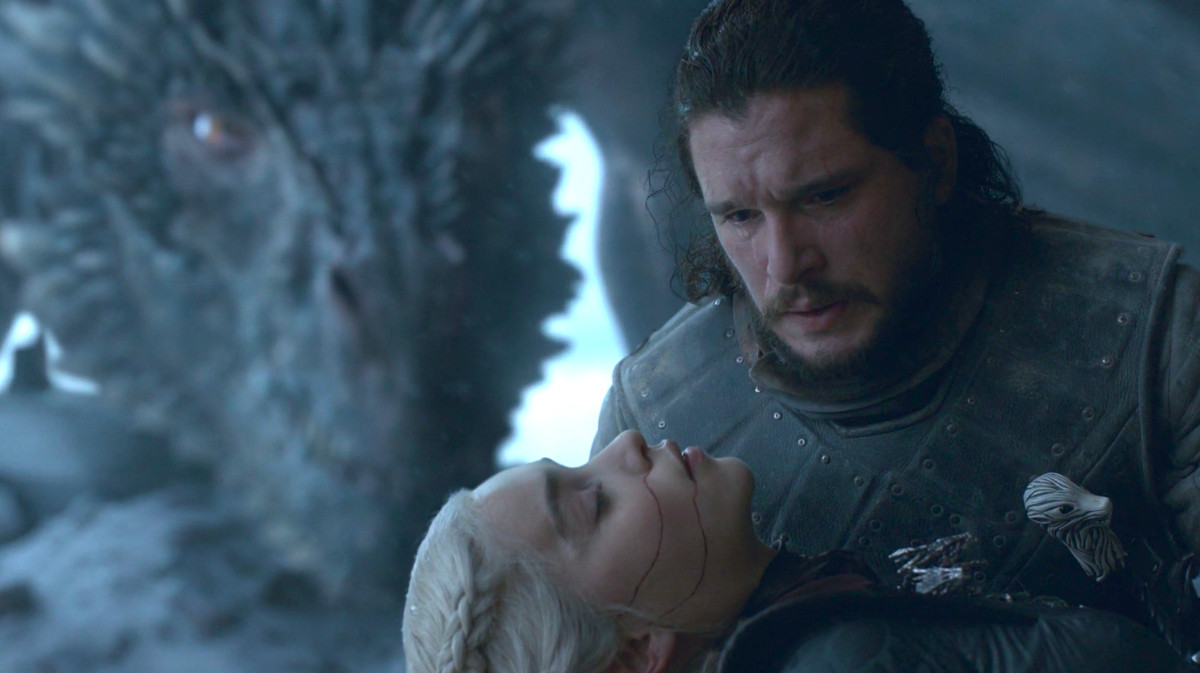
Talk about a botched opportunity. You have Daenerys Targaryen, one of the most beloved characters ever created in any fictional format; opposite her, the equally beloved Jon Snow; and between them, a magical story that intertwines the ideas of power, morality, duty and love. And though many people saw it coming, even so, that this story would end with Jon choosing duty over love, and sacrificing the woman he truly loved, is incredibly powerful. So why didn’t I feel that way watching it? And then just like that, Drogon scoops up Dany and flies her out of there. Oh, but not before melting the Iron Throne, the very throne the Targaryens created in the first place. I’m not sure there’s any real explanation for Drogon flying away with Dany’s dead body, other than a setup for somehow bringing her back to life for some future Thrones spinoff, which seems highly unlikely. The end to Dany and Jon’s story was a total miss of epic proportions.
One Strange Council
Just a moment later, we’re past the emotionless death of Dany, and we’re now all business as the “who’s who” of Westeros have gathered to determine the fate of the realm. It kind of felt like all the unimportant remaining characters were scrapped together and this is when the episode went from bad to just silly. First of all, half of these characters had absolutely no business being there. Edmure Tully, Catelyn’s brother is all of a sudden making a return after having had zero role in this story for many seasons? Yara Greyjoy is back, without anything from her since she went back to The Iron Islands? Oh and let’s not forget about introducing a brand new Dornish prince (who doesn’t even speak) to join this mish-mosh of a crew. And perhaps the absolute funniest of all is Robert Arryn, the sickly son of Lysa Arryn, who previously didn’t know how to do anything other than breastfeed…He’s now got a seat on this council? There were a few others that I did not even recognize, furthering the ridiculousness of this gathering.
The group goes back and forth about what to do next, and apparently after all that has transpired, after King’s Landing has basically been totally destroyed and the world of Westeros has been turned upside down, this silly council is going to solve for the future of the realm in one simple conversation. And all of a sudden Grey Worm is mr chatterbox, driving much of the direction of the council’s decisions. In this one episode, Grey Worm speaks more than he has in the past seven seasons combined. After the death of Dany, he wants revenge, but Tyrion reminds him that it’s not his decision to make, which leads to the debate of who should take power next. Comically, Edmure Tully stands up to state his case, before Sansa tells him to sit down. Why? Why would the writers choose to include dialogue in this final episode that sees Edmure Tully, a completely irrelevant character, stand up and make a claim for the throne? Unless they were going for some sort of comedic relief, it just doesn’t belong. But the comedy didn’t stop there. Samwell suggests they consider a more democratic election where the people have a say, and for some reason, others found this to be comical, poking fun and sarcastically asking if their dogs and horses would get a say. The whole thing felt like a bad SNL skit.
Finally, we arrive at the moment that pretty much caps this entire story — the reveal of who would end on the throne. And to be quite honest, I couldn’t have cared less at this point. The realization of who would take the Throne was not decided by any significant final moment in the story, but rather by a cast of irrelevant characters making forced decisions, so the reveal of who would end on the Throne simply felt like an anticlimactic “who cares” moment. But the only thing that could have been less sensible than everything that has already transpired would be to make Bran the one to end on the throne. And of course, that’s precisely what happens. The logic behind it makes sense — Tyrion paints the picture that the most powerful thing in life is a story and we know Bran is keeper of all stories and memories. So we get it. But, we are talking about a guy that has totally lost his human mind. He’s been on a multiyear journey where his entire life has been dedicated to an existential evolution, which saw him become the Three-Eyed-Raven. In doing so, he has experienced all kinds of visions, past, present and future, that revealed powerful moments which changed him forever. We’re talking Children of the Forest, White Walkers, The Night King — Bran was in the thick of it all. When all of those mythological elements of the show died along with The Night King in an unbelievably disappointing fashion, it definitely created some question marks for what was left for Bran in this story, if anything. I mean we haven’t even seen the guy in several episodes. Now, all of a sudden, he’s being named the king of Westeros? Talk about delivering a cheap ending to this story — did nobody working on this show stop to realize how senseless this was? We are talking about the character who had reached total enlightenment, so much so, that he didn’t even really know how to be a human anymore. And now we are going to plunge him into the politics of being the ruler of the realm?
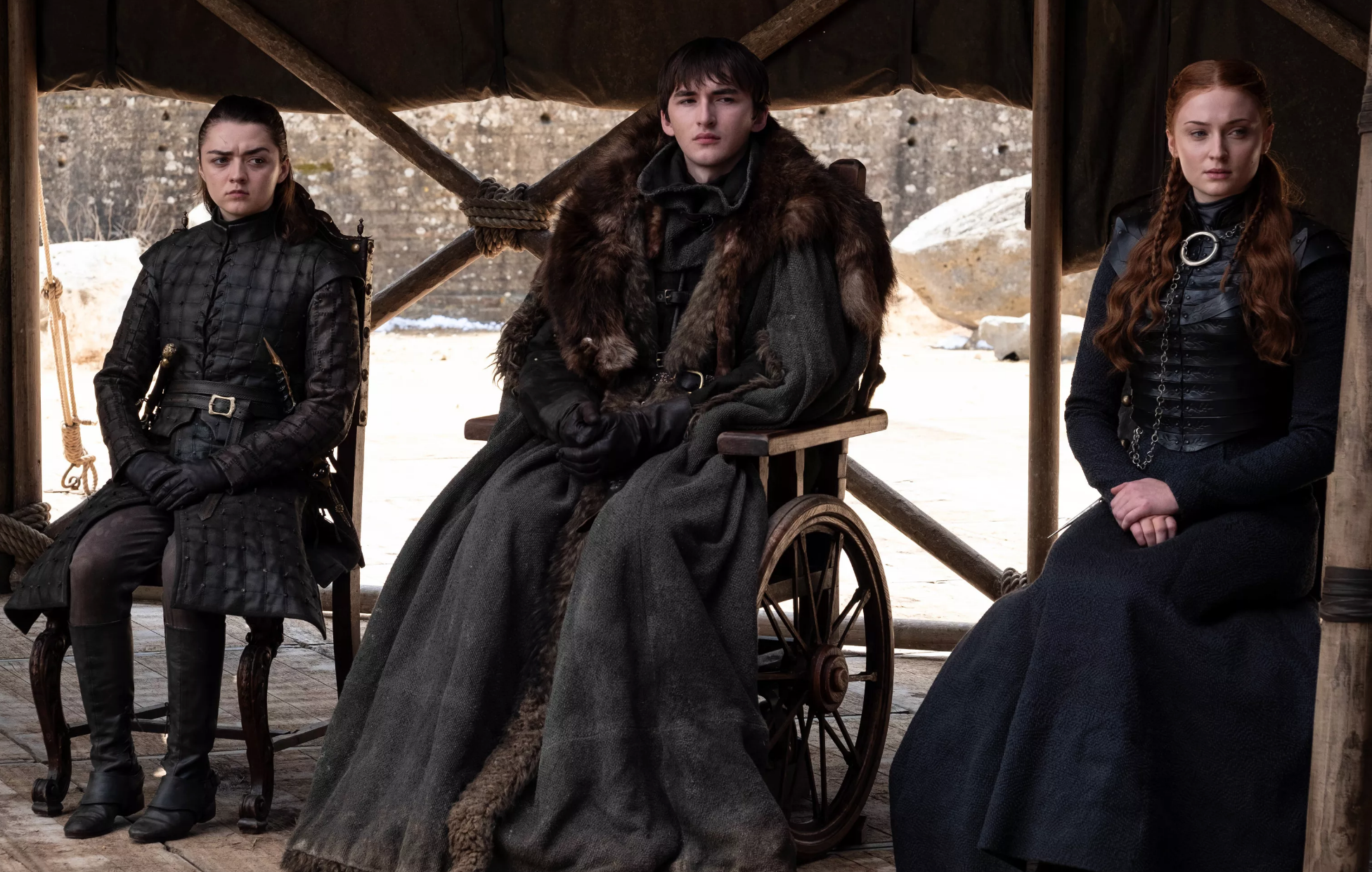
But he won’t be the king of the Seven Kingdoms. He only gets six. Sansa had to get her two cents in and tell Bran that she wants The North to remain its own independent kingdom as it had been for thousands of years before Aegon’s Conquest. And that’s fine, but the only problem is that ALL the kingdoms had been independent prior, so why would the representatives of Dorne and The Vale and The Iron Islands all be okay with The North not bending the knee while they have to? Also, given that it was another member of House Stark ending up on the throne, Sansa’s desire to annex The North just makes that much less sense — it’s her own brother on the throne. Totally illogical storytelling and it just felt like a forced way to be able to show Sansa as the queen of The North, without regard for the fact it did not make sense to the story itself. But hey, not much has to really make sense anymore, so let’s go with it.
Back to The Wall
So that’s that. Bran is some sort of Three-Eyed-Raven king and Sansa is queen in the North. But we’ve got to come up with some sort of contrived ending for Jon, right? How about we send him back to The Wall, where his story began. That sounds like a cheap, easy and poetic ending for his character — so let’s go with that. I also found it strange that while the council was trying to figure out who should take the throne, Jon wasn’t mentioned once. True, he had just killed Dany, but if we subscribe to the idea that he was the rightful heir, then it was Dany who was revolting and trying to claim a throne that was not hers. That would provide some justification for Jon having to kill Dany, to eliminate a usurper. So, with her gone, and everybody grasping at straws to figure out who should be next in line, why is nobody bringing up Jon, the actual rightful heir?
Anyway, just like that, he’s back in his Night’s Watch garb, hair back down like it used to be in the old days, and headed back to The Wall. Another character with a massive arc that gets a senseless ending. We are talking about the guy that was arguably the most important character; the guy that became Lord Commander of The Night’s Watch; the guy that risked it all to put the world on alert about The Night King; the guy that fought and won in countless fate-determining battles; the guy that was brought back from the dead; and the guy that made the ultimate sacrifice as he took the life of Daenerys Targaryen. And after all of that, we just send him to The Wall? I mean what an unbelievably disappointing, unsatisfying and silly way to end his story.
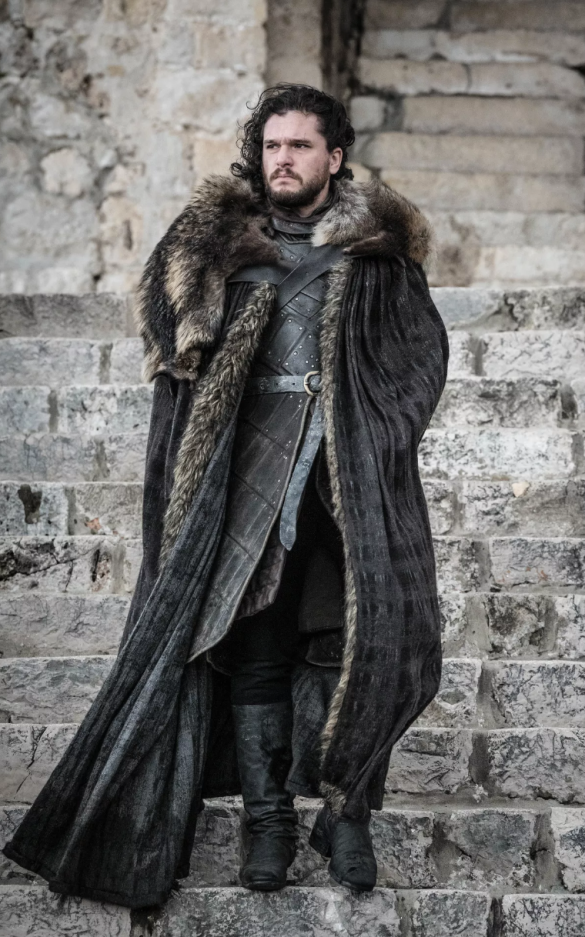
But before he departs, we get a round of cliche goodbyes with each of his siblings, the best of which reveals that Arya is now channeling her inner Christopher Columbus/Dora the Explorer. She’s off to explore the world, whatever is west of Westeros. I mean how cheesy do we want to get here? If they wanted to set up Arya for her own spinoff, they certainly left that door open, but man, after all that Arya has gone through and all her incredible character development, that’s where we end her story? Sending her to cheerfully explore westward made her feel more like a Disney character than anything else. A Cheap and easy cop-out, just like all the others. It’s also confusing to consider how central she was to last week’s episode, with no follow up in the finale. She was a major point of view character last week, running through the streets and the episode ending with her riding out on her white horse. It seemed like she was being set up for some major ending to her character. But it ended up being all for her to play basically zero role in the story’s end. If you think about, since killing The Night King (which was another big screw-up), she basically had zero involvement in the story since — just noise.
Before the episode comes to a close, we get to see the new council that will support King Bran, and it’s a total joke. Tyrion as hand; Davos a Master of Ships; Bronn as Master of Coin; Samwell as archmaestar; Brienne as commander of the King’s Guard. It felt like the writers threw darts at the wall to see who they’d randomly choose to fill each of these roles. The council meeting itself was so comical that it’s hard to believe writers were going for anything else. In the finale episode of this entire story, we have to listen to their light-hearted banter about what their first objectives will be and whether they’re going to rebuild ships or brothels first? And what about Samwell Tarly, casually presenting Tyrion with a book of recent history called A Song of Ice and Fire. Talk about forcing something into the script and an egregious namedrop. Embarrassing stuff.
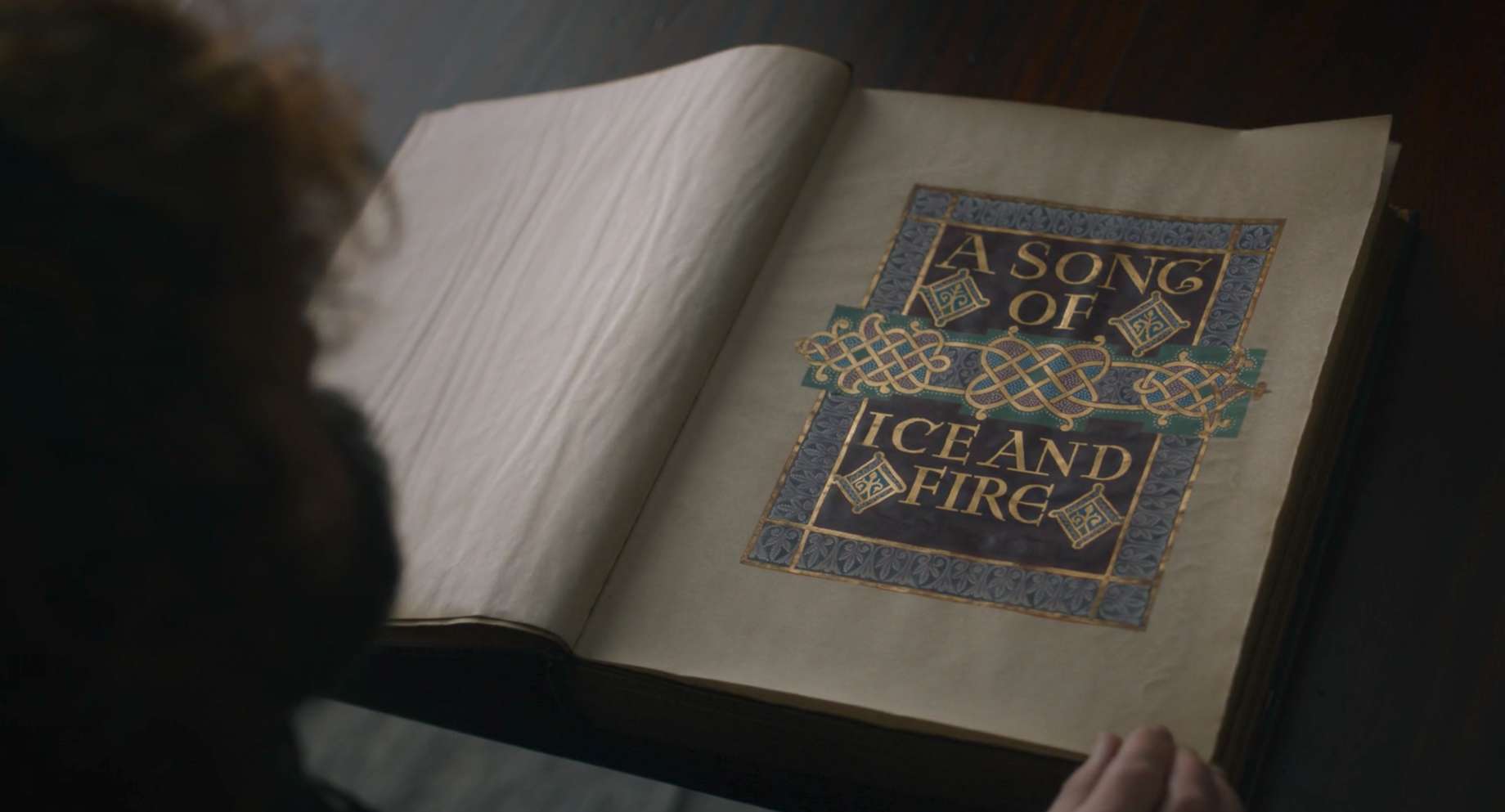
Assembling a hodgepodge council like this simply disrespects the greatness of the history of the council, one that was once comprised of characters like Tywin Lannister, Varys, Littlefinger, etc… Now we’ve got Bronn and Davos joking about where they’ll allocate their funds first, as if King’s Landing wasn’t only recently completely decimated. Speaking of which, Bran asks if anybody has heard about the location of Drogon, but nobody has. In another weird moment, Bran tells them not to worry and that he’ll take care of figuring out where Drogon is. My first question: given the entire series is about to come to a close, why are we wasting time talking about where the dragon went? My second question: Bran, you are the Three-Eyed-f*cking-Raven — why are you going to this council of C-listers for advice in the first place — aren’t you the all-knowing one? What a total mess.
Finally, Jon returns to The Wall, where of course there will be a couple more cliche reveals. Tormund and Ghost are both waiting for him there, and eventually, they continue north of The Wall, presumably to live a life with The Free Folk. As they enter into the depth of the forest, the show comes to an end, and the confusion reaches its climax. Why is that the final image of this entire story? Jon walking into the forest with the Wildlings hardly seems like the final takeaway to leave viewers with.
And just like that, it’s all over. It was an ending that was obvious, uninspiring and simply silly in many ways. It was so beneath the greatness of Thrones and I cannot think of many ways they could have delivered a more disappointing end to this story. All that said, it would be a mistake to overlook the greatness that this show offered for so many years. Game of Thrones took television to heights it had never been before and captivated a global audience with its magic. Though I will forever be confused and disappointed by how the show brought closure to this story, I will also be thankful for all that it offered for so many years. I would highly encourage each of you to consider picking up the books and starting this journey over the right way, setting yourself up to experience the true ending to this story once it is properly told by George R.R. Martin himself.
Finally, thanks to all the fans and readers of ThronesLife. It has been great to share the passion with so many of you. Keep an eye out for what comes next : )
— Jacob Kent, ThronesLife Creator & Author

